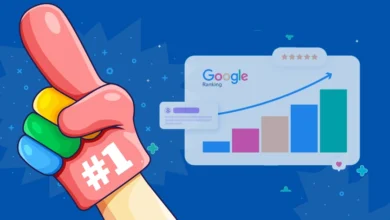Are you a new blogger with designs on making money from your hobby at some point in the future? If so, you need to think of your blog as a business from day one – and it’s virtually impossible for any online business owner to become successful without knowing at least a little about search engine optimization (SEO).
On the surface, SEO may seem like an extremely technical field – but it’s actually not. SEO is really just optimizing your blog in a way that makes it as easy as possible for Google to understand. Exercising strong SEO practices helps to ensure that you’ll be ranked for the right keywords and will receive as much organic traffic as you possibly can.
SEO for new bloggers all comes down to the five simple steps that we’re going to explain in this guide. Before long, SEO will become part of your normal workflow for producing a new blog post, and you won’t even have to think about it anymore. Let’s jump in.
Use a Keyword Research Tool
The single most important thing to understand as a new blogger is that you should almost never just write off the top of your head. If you want your post to get traffic, the topic needs to revolve around a focus keyword. It needs to be a keyword that people actually search for, or you’ll have no chance to receive organic traffic from Google – it’s that simple.
Finding the target keyword(s) for a blog post is called keyword research, and there are plenty of online tools – both free and paid – that can help you do it. Keyword research usually involves inputting a main keyword or topic, and the tool then shows you a list of related keywords along with their average monthly search volumes. Some tools may also show you the keywords that your competitors are using to drive traffic to their blogs, which can be useful.
Keyword research is something that you can do in bulk when you’re launching a new blog. A few hours of work can produce a list of article topics that might take you months to get through. Research can also help you understand the big-picture situation in your chosen niche. If you’re starting a blog about vaping, for instance, it can be helpful to know that more people are searching for information about Geek Bars than any other brand.
In some cases, it can be beneficial to choose target keywords with lower search volumes because it means that you’ll have less competition trying to rank for those same keywords. More often than not, though, you’ll want to go where the search traffic is.
Research What Currently Ranks for Your Chosen Topic
After you’ve selected the topic for your blog post, you shouldn’t start writing right away unless you’re such an expert on the topic that you can cover it comprehensively just by writing off the top of your head. Instead, you should look at the content that currently appears on Google’s first page for your chosen topic. Get a feel for the type of content that Google wants to show for that keyword. You may also find additional information or points of view that you can add to your outline, which you should already be working on. We’ll discuss that next.
Outline Your Blog Post Before Writing It
Every great blog post begins with an outline. The outline should detail the post’s subsections and list all of the points that you intend to discuss in the article. An outline is crucially important because it helps you organize your thoughts in a logical way. It also ensures that you won’t forget any of the information that you want your post to include.
Make Your Post as Great as It Can Be
After your blog post is fully outlined, it’s time to start writing it. If you’re considering blogging as a career, there’s a good chance that you already have a bit of writing experience. It’s possible that you’ve never written for an online audience, though, so here are some extra tips that can help you write a top-ranking post.
- Let your unique personality and expertise shine through. Although it’s good to incorporate information from other expert sources, your ultimate goal with every blog post should be to provide some insight that isn’t available anywhere else.
- Don’t try to hit a specific word count. A blog post doesn’t need to be 2,000 words long in order to get on the first page of the search results. Instead, make it your goal to cover the topic comprehensively – and let the topic dictate the word count.
- Use subheadings, images, bullet lists and bold text liberally to maintain reader interest, emphasize key points and optimize the content for easy scanning. Remember that no one wants to read a giant wall of text, regardless of how informative it may be.
Learn Some Basic Technical SEO
Up to this point, we haven’t really discussed SEO at all. That’s by design because the biggest aspect of SEO is simply producing great content. However, understanding how to improve SEO with schema can help Google better interpret and present your content, especially for rich results. Google is actually quite good at identifying great content and ranking it appropriately. It’s still worthwhile to learn a little bit of technical SEO, though, because it’s important to make sure that Google’s algorithms know which keywords you believe are relevant for your content.
- The post’s title and URL should always contain the main keyword phrase that you’re trying to rank for. There are no exceptions to this rule.
- Images should have file names containing the post’s main focus keyword and other related terms. If an image has a file name like Image001.jpg when it could have been Nike-Shoe-Review.jpg, you’re missing out on a big SEO opportunity.
- Every image should include alt text describing what’s shown in the picture. Ideally, the alt text should also contain some of the post’s important keywords.
- Give the post an appealing meta description. Although the meta description won’t directly impact the post’s rankings on Google, it may improve your click-through rates if you do a good job of pre-selling your content – and click-through rates do affect organic rankings.
- Don’t try to rank for a keyword by repeating it over and over in your content. That won’t help and could actually hurt your rankings. It’s much more important to illustrate your mastery of the topic and write naturally in a way that entertains and informs your readers.






This was beautiful Admin. Thank you for your reflections.